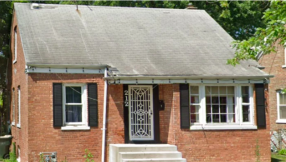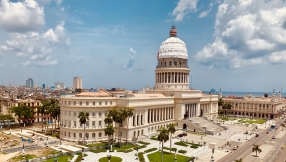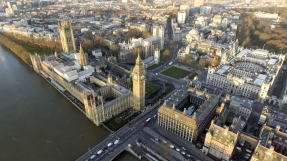
The Bishop of Wakefield is calling for urgent action to be taken to bring an end to fighting in the Central African Republic.
The Right Reverend Stephen Platten was taking part in a debate in the House of Lords on the Central African Republic and Great Lakes Region.
He asked what progress was being made in placing sanctions on rebel leaders and what steps were being taken to respond to the extreme violence taking place.
Noting the humanitarian aid work being undertaken by faith groups and NGOs, the bishop also asked for assurance that the UK would recognise and strengthen their capacity for action in the area.
The bishop opened his speech with a summary of the ongoing conflict in the region, noting the key moments that have defined the conflict, including the Katanga breakaway movement when the state proclaimed itself independent in 1960, which he said "made the entire Great Lakes region a terrible, open wound on our common humanity".
Parliamentary Under-Secretary at the Department for International Development, Lynne Featherstone's, recently described the situation in the Central African Republic as "the world's forgotten crisis".
Bishop Platten echoed these sentiments, saying it was "shameful" that the crisis remains hidden and that the UN humanitarian appeal is "hopelessly underfunded".
"Our inability to address this complex emergency and to provide adequate protection for civilians has seen this crisis spread far beyond the Republic's borders to destabilise a region already facing significant challenges," he said.
The UN Secretary-General Ban Ki-Moon recently made a report to the UN Security Council warning that human rights abuses in the area, including sexual violence against women and children, torture, rape, targeted killings and the recruitment of child soldiers, are becoming increasingly common.
This report confirms the warnings made by the International Federation for Human Rights, which has described the extensive human rights violations as "international crimes".
Bishop Platten voiced his support for sanctions to be placed by the international community on Seleka leaders and warlords in the region. He said that their financial assets must be frozen and measures must be taken to curtail the extreme violence.
He spoke positively of the Foreign Secretary's Prevention of Sexual Violence Initiative in places of conflict and suggested similar steps be taken in the Central African Republic.
The bishop quoted reports that state the Church is "one of the few organisations at present responding to the crisis by sheltering displaced people, delivering humanitarian aid and addressing religious tensions".
However, he went on to warn that efforts have been hindered as a result of lack of funds, and problems gaining access to the region due to the levels of violence.
He asked for assurance that both civil society and faith-based groups would be given support to ensure that they are able to play "a strategic role in the process of reconciliation and reconstruction" in the region.
It was "a tragedy", he said, that a country "with such abundant natural resources...should be one of the poorest in the world, and subject to such political unrest and economic instability".
The bishop ended with a stern warning of the country's crisis "spiralling into a wider resource conflict, fuelled by all those greedy for power and greedy for more money", unless steps were taken immediately to bring the fighting to an end.
His speech was concluded by Baroness Warsi on behalf of the Government, who thanked the Bishop for his words and assured those present that sanctions would be considered at the right time. She also confirmed that an international effort would be made to restore security in the country ,and to support the work already being undertaken to combat sexual violence in the region.













